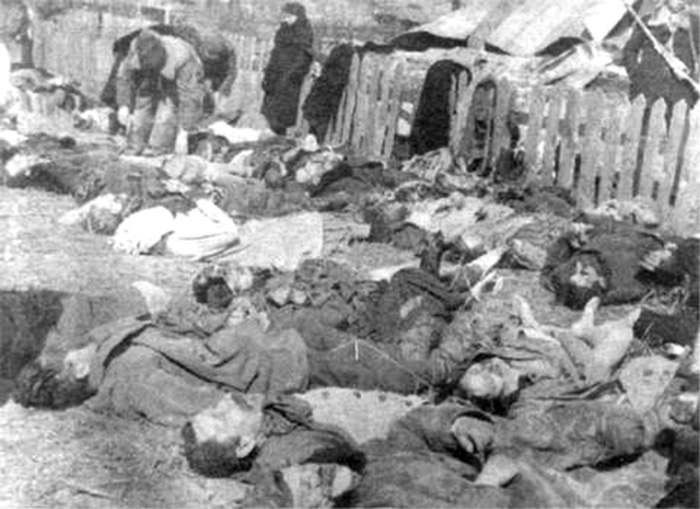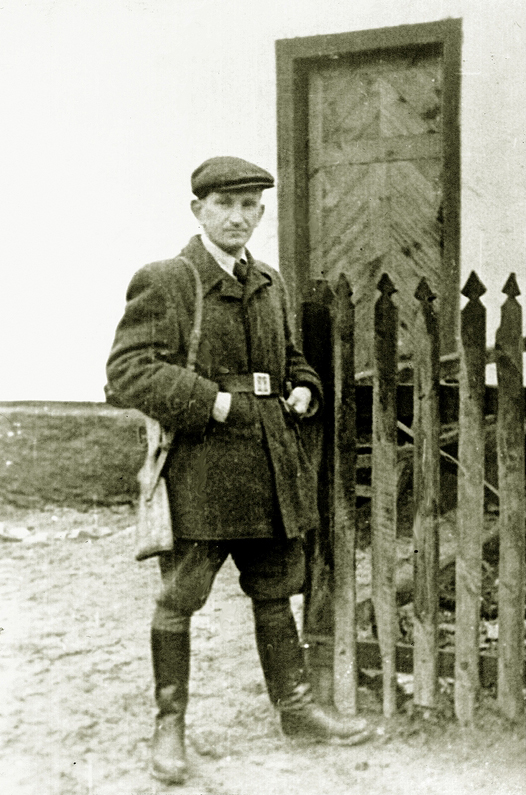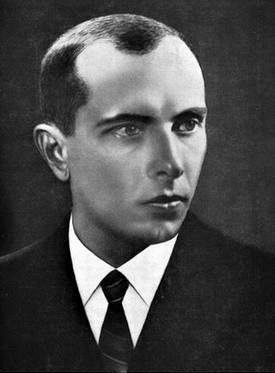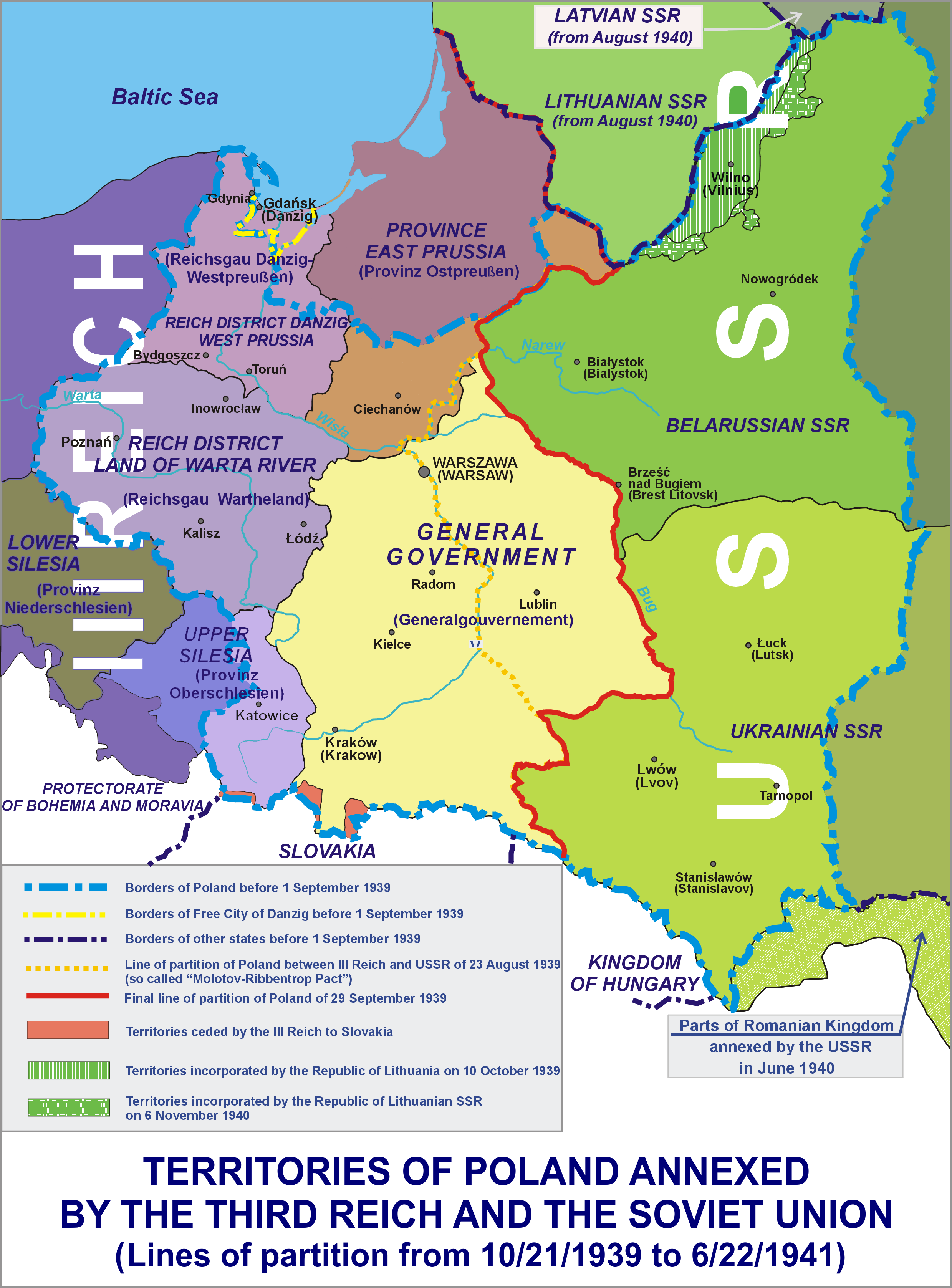|
Volhynian Genocide
The Massacres of Poles in Volhynia and Eastern Galicia (; ) were carried out in German-occupied Poland by the Ukrainian Insurgent Army (UPA), with the support of parts of the local Ukrainian population, against the Polish minority in Volhynia, Eastern Galicia, parts of Polesia, and the Lublin region from 1943 to 1945. The UPA's actions resulted in up to 100,000 Polish deaths. The peak of the massacres took place in July and August 1943. These killings were exceptionally brutal, and most of the victims were women and children. Other victims of the massacres included several hundred Armenians, Jews, Russians, Czechs, Georgians, and Ukrainians who were part of Polish families or opposed the UPA and impeded the massacres by hiding Polish escapees. The ethnic cleansing was a Ukrainian attempt to prevent the post-war Polish state from asserting its sovereignty over Ukrainian-majority areas that had been part of the pre-war Polish state. The decision to force the Polish population ... [...More Info...] [...Related Items...] OR: [Wikipedia] [Google] [Baidu] |
Eastern Front (World War II)
The Eastern Front, also known as the Great Patriotic War (term), Great Patriotic War in the Soviet Union and its successor states, and the German–Soviet War in modern Germany and Ukraine, was a Theater (warfare), theatre of World War II fought between the European Axis powers and Allies of World War II, Allies, including the Soviet Union (USSR) and Polish Armed Forces in the East, Poland. It encompassed Central Europe, Eastern Europe, Northern Europe, Northeast Europe (Baltic states, Baltics), and Southeast Europe (Balkans), and lasted from 22 June 1941 to 9 May 1945. Of the estimated World War II casualties, 70–85 million deaths attributed to World War II, around 30 million occurred on the Eastern Front, including 9 million children. The Eastern Front was decisive in determining the outcome in the European theatre of World War II, European theatre of operations in World War II, eventually serving as the main reason for the defeat of Nazi Germany and the Axis ... [...More Info...] [...Related Items...] OR: [Wikipedia] [Google] [Baidu] |
Roman Shukhevych
Roman-Taras Osypovych Shukhevych (, also known by his pseudonym, Tur and Taras Chuprynka; 30 June 1907 – 5 March 1950) was a Ukrainian nationalism, Ukrainian nationalist and a military leader of the nationalist Ukrainian Insurgent Army (UPA), which during the Second World War fought against the Soviet Union and to a lesser extent against Nazi Germany for Ukrainian independence.Anton Shekhovtsov (2011). "The Creeping Resurgence of the Ukrainian Radical Right? The Case of the Freedom Party" ''Europe-Asia Studies'' 63:2, pp. 203–228. . "Although originally the UVO was seen as both a military and a political organisation, its military actions were mostly terrorist, while its political activities failed altogether." He Ukrainian collaboration with Nazi Germany, collaborated with the Nazis from February 1941 to December 1942 as commanding officer of the Nachtigall Battalion in early 1941, and as a of the German Schutzmannschaft Battalion 201, Schutzmannschaft 201 auxiliary polic ... [...More Info...] [...Related Items...] OR: [Wikipedia] [Google] [Baidu] |
27th Home Army Infantry Division (Poland)
27th Volhynian Infantry Division () was a World War II Polish Home Army formed in the Volhynia region in 1944. It was created on January 15, 1944, from smaller partisan self-defence units during the Volhynia massacre and was patterned after the prewar Polish 27th Infantry Division. History The 27th Volhynian Infantry Division of the Home Army (AK) was the first large Polish military unit to openly engage in combat with the Germans as part of Operation Tempest. Volhynia, even before the war, was a region with the smallest percentage of Polish population, further decimated by Soviet deportations, German terror, and the genocide carried out by Ukrainian nationalists since 1943. Considering the dire situation, the local AK command, led primarily by commander Colonel Kazimierz Bąbiński "Luboń" and chief of staff Captain Tadeusz Klimowski "Ostoja", decided to concentrate all forces in one region, east of the Bug River, and form a single large corps. Bąbiński issued the mo ... [...More Info...] [...Related Items...] OR: [Wikipedia] [Google] [Baidu] |
Banderite
A Banderite or Banderovite (; ; ; ) is a name for the members of the OUN-B, a faction of the Organization of Ukrainian Nationalists. The term, used from late 1940 onward, derives from the name of Stepan Bandera (1909–1959), the ultranationalist leader of this faction of the OUN. Because of the brutality utilized by OUN-B members, the colloquial term Banderites quickly earned a negative connotation, particularly among Poles and Jews. By 1942, the expression was well-known and frequently used in western Ukraine to describe the Ukrainian Insurgent Army partisans, OUN-B members or any other Ukrainian perpetrators. The OUN-B had been engaged in various atrocities, including murder of civilians, most of whom were ethnic Poles, Jews, and Romani people. In propaganda the term has been used by Soviets after 1942 as a pejorative term for Ukrainians, especially western Ukrainians, or Ukrainian speakers; under Vladimir Putin-ruled Russia the term was used by state media as a pejora ... [...More Info...] [...Related Items...] OR: [Wikipedia] [Google] [Baidu] |
The New York Review Of Books
''The New York Review of Books'' (or ''NYREV'' or ''NYRB'') is a semi-monthly magazine with articles on literature, culture, economics, science and current affairs. Published in New York City, it is inspired by the idea that the discussion of important books is an indispensable literary activity. ''Esquire (magazine), Esquire'' called it "the premier literary-intellectual magazine in the English language". In 1970, writer Tom Wolfe described it as "the chief theoretical organ of Radical Chic". The ''Review'' publishes long-form reviews and essays, often by well-known writers, original poetry, and has letters and personals advertising sections that had attracted critical comment. In 1979 the magazine founded the ''London Review of Books'', which soon became independent. In 1990 it founded an Italian edition, ''la Rivista dei Libri'', published until 2010. The ''Review'' has a book publishing division, established in 1999, called New York Review Books, which publishes reprints o ... [...More Info...] [...Related Items...] OR: [Wikipedia] [Google] [Baidu] |
Bloomsbury Academic
Bloomsbury Publishing plc is a British worldwide publishing house of fiction and non-fiction. Bloomsbury's head office is located on Bedford Square in Bloomsbury, an area of the London Borough of Camden. It has a US publishing office located in New York City, an India publishing office in New Delhi, an Australian sales office in Sydney CBD, and other publishing offices in the UK, including in Oxford. It is listed on the London Stock Exchange and is a constituent of the FTSE 250 Index. History The company was founded in 1986 by Nigel Newton, who had previously been employed by other publishing companies. It was floated as a public registered company in 1994, raising £5.5 million, which was used to fund expansion of the company into paperback and children's books. A rights issue of shares in 1998 further raised £6.1 million, which was used to expand the company, in particular to found a U.S. branch. In 1998, Bloomsbury USA was established. Bloomsbury USA Books for Young Read ... [...More Info...] [...Related Items...] OR: [Wikipedia] [Google] [Baidu] |
Institute Of National Remembrance
The Institute of National Remembrance – Commission for the Prosecution of Crimes against the Polish Nation (, abbreviated IPN) is a Polish state research institute in charge of education and archives which also includes two public prosecution service components exercising investigative, prosecution and Lustration in Poland, lustration powers. The IPN was established by the Polish parliament by the Act on the Institute of National Remembrance of 18 December 1998 through reforming and expanding the earlier Main Commission for the ''Investigation'' of Crimes against the Polish Nation of 1991, which itself had replaced the General Commission for Research on Fascist Crimes, a body established in 1945 focused on investigating the crimes of the Nazi administration in Poland during World War II. In 2018, IPN's mission statement was amended by the controversial Amendment to the Act on the Institute of National Remembrance to include "protecting the reputation of the Republic of Poland ... [...More Info...] [...Related Items...] OR: [Wikipedia] [Google] [Baidu] |
Polesia
Polesia, also called Polissia, Polesie, or Polesye, is a natural (geographic) and historical region in Eastern Europe within the East European Plain, including the Belarus–Ukraine border region and part of eastern Poland. This region should not be confused with parts of Russia also traditionally called "Polesie". Extent One of the largest forest areas on the continent, Polesia is located in the southwestern part of the Eastern-European Lowland, the Polesian Lowland. On the western side, Polesia includes the crossing of the Bug River valley in Poland and the Pripyat River valley of Western Ukraine. The westernmost part of the region, located in Poland and around Brest, Belarus, historically also formed part of the historic region of Podlachia, and is also referred to as such. The modern Polish part was not considered part of Polesia by the late 19th-century '' Geographical Dictionary of the Kingdom of Poland'', which defined the region as roughly a triangle between ... [...More Info...] [...Related Items...] OR: [Wikipedia] [Google] [Baidu] |
Ukrainians
Ukrainians (, ) are an East Slavs, East Slavic ethnic group native to Ukraine. Their native tongue is Ukrainian language, Ukrainian, and the majority adhere to Eastern Orthodox Church, Eastern Orthodoxy, forming the List of contemporary ethnic groups, second largest ethno-linguistic community. At around 46 million worldwide, Ukrainians are the second largest Slavs, Slavic ethnic group after Russians. Ukrainians have been Endonym and exonym, given various names by foreign rulers, which have included Polish–Lithuanian Commonwealth, the Habsburg monarchy, the Austrian Empire, and then Austria-Hungary. The East Slavic population inhabiting the territories of modern-day Ukraine were known as Ruthenians, referring to the territory of Ruthenia; the Ukrainians living under the Russian Empire were known as Little Russians, named after the territory of Little Russia. The ethnonym Ukrainian, which was associated with the Cossack Hetmanate, was adopted following the Ukrainian natio ... [...More Info...] [...Related Items...] OR: [Wikipedia] [Google] [Baidu] |
Occupation Of Poland (1939–1945)
During World War II, Poland was occupied by Nazi Germany and the Soviet Union following the invasion in September 1939, and it was formally concluded with the defeat of Germany by the Allies in May 1945. Throughout the entire course of the occupation, the territory of Poland was divided between Nazi Germany and the Soviet Union (USSR), both of which intended to eradicate Poland's culture and subjugate its people. In the summer-autumn of 1941, the lands which were annexed by the Soviets were overrun by Germany in the course of the initially successful German attack on the USSR. After a few years of fighting, the Red Army drove the German forces out of the USSR and crossed into Poland from the rest of Central and Eastern Europe. Sociologist Tadeusz Piotrowski argues that both occupying powers were hostile to the existence of Poland's sovereignty, people, and the culture and aimed to destroy them. Before Operation Barbarossa, Germany and the Soviet Union coordinated th ... [...More Info...] [...Related Items...] OR: [Wikipedia] [Google] [Baidu] |
Administrators' Noticeboard/Edit Warring
__NEWSECTIONLINK__ Non-talk pages that are automatically signed Wikipedia edit warring User:Ronnnaldo7 reported by User:The Cheesedealer (Result: Blocked 48 hours) Page: June 2025 Israeli strikes on Iran User being reported: Previous version reverted to:''here Diffs of the user's reverts: 21:42, 13 June 202521:14, 13 June 2025 Diff of edit warring / 1RR warning:''here Diff of attempt to resolve dispute on article talk page:''here Diff of ANEW notice posted to user's talk page:''here Comments: User has engaged on the talk page, and reacted to the warnings given to him (negatively) — '' !!!⚟'' 16:23, 14 June 2025 (UTC) As I mentioned on the article talk page I didn't believe it was against 1RR since it wasn't a true revert; it was added content per your request for WP:BALANCE, and I discussed it on the talk page. I have tried to keep my edits in WP:GoodFaith, and I think it's very disingenuous of you to say my reaction was negative after I thanked you and asked ... [...More Info...] [...Related Items...] OR: [Wikipedia] [Google] [Baidu] |
Ukrainisation
Ukrainization or Ukrainisation ( ) is a policy or practice of increasing the usage and facilitating the development of the Ukrainian language and promoting other elements of Ukrainian culture in various spheres of public life such as education, publishing, government, and religion. The term is also used to describe a process by which non-Ukrainians or Russian-speaking Ukrainians are assimilated to Ukrainian culture and language, either by individual choices or as a result of social processes or policies. In Western historiography, the term ''Ukrainization'' refers also to a policy and resulting process of forcing ethnic minorities living on Ukrainian territories to abandon their ethnic identity by means of the enforced assimilation of Ukrainian culture and identity. During the aftermath of World War II, in the Ukrainian SSR this process had been preceded by the expulsion of some ethnic minoritiesNorman Davies, '' God's Playground, a History of Poland'', Columbia University Press ... [...More Info...] [...Related Items...] OR: [Wikipedia] [Google] [Baidu] |







